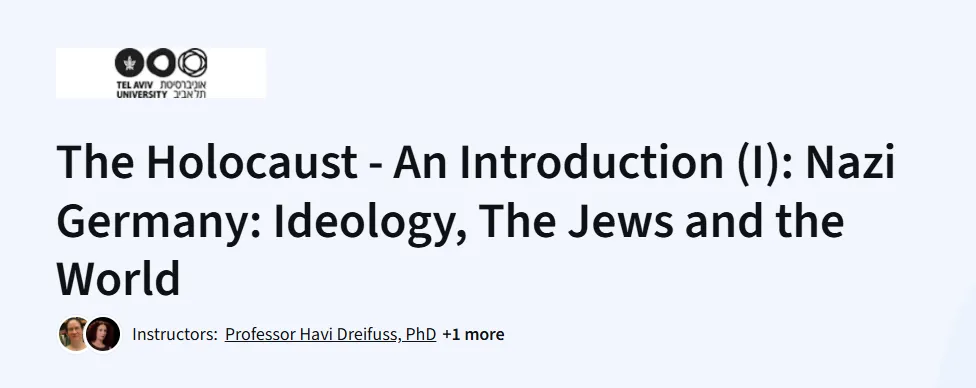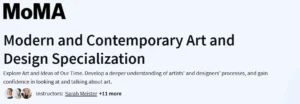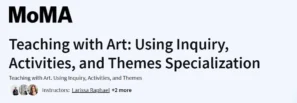What will you learn in The Holocaust – An Introduction (I): Nazi Germany: Ideology, The Jews and the World Course
Understand the origins of Nazi anti-Semitic ideology and how it evolved into systematic persecution.
Explore the early years of the Holocaust (1933–1939), including policies of exclusion and forced emigration.
Examine the social, political, and cultural conditions in Germany and Austria during the rise of Hitler.
Analyze how laws, propaganda, and public support contributed to the marginalization of Jews.
Reflect on survivor testimonies, historical footage, and expert interpretations of the events leading up to WWII.
Program Overview
Module 1: Introduction to Holocaust Studies
⏳ 1 week
Topics: What is the Holocaust, historical context, study challenges
Hands-on: Watch survivor testimonies and explore archival materials
Module 2: Nazi Ideology and Anti-Semitism
⏳ 1 week
Topics: Roots of Nazi racial theory, Mein Kampf, Hitler’s worldview
Hands-on: Analyze primary sources such as propaganda posters and speeches
Module 3: Rise of the Nazi Regime
⏳ 1 week
Topics: Hitler’s rise to power, early persecution laws, Nuremberg Laws
Hands-on: Examine legal documents and timelines of early legislation
Module 4: Jewish Life in Nazi Germany
⏳ 1 week
Topics: Economic, social, and cultural exclusion of Jews
Hands-on: Study personal stories and community responses to discrimination
Module 5: Forced Emigration and Kristallnacht
⏳ 1 week
Topics: Emigration policies, international response, November Pogrom
Hands-on: Trace emigration maps and evaluate world reactions
Get certificate
Job Outlook
Relevant for educators, historians, sociologists, and cultural researchers.
Valuable for careers in Holocaust education, museum curation, and public history.
Supports development of critical thinking and historical empathy in teaching.
Important for civic education, policy studies, and human rights work.
Specification: The Holocaust – An Introduction (I): Nazi Germany: Ideology, The Jews and the World
|
FAQs
- No prior history knowledge required.
- Introduces Nazi ideology, anti-Semitism, and early persecution.
- Suitable for educators, students, and history enthusiasts.
- Uses survivor testimonies and archival materials for context.
- Builds foundational understanding for further Holocaust studies.
- Covers Nazi racial theory and Hitler’s worldview.
- Explains early persecution laws and Nuremberg Laws.
- Analyzes propaganda and public response.
- Examines social, political, and cultural conditions in Germany and Austria.
- Reflects on primary sources such as speeches and posters.
- Integrates survivor narratives and personal stories.
- Includes archival photographs and historical footage.
- Encourages reflection on individual and community experiences.
- Helps learners understand the human impact of persecution.
- Reinforces learning with contextual analysis.
- Useful for Holocaust education, museum curation, and public history.
- Develops critical thinking and historical empathy.
- Supports civic education, human rights, and policy studies.
- Provides insights into early Holocaust events for teaching purposes.
- Certificate enhances professional credibility in historical studies.
- 5 modules covering Holocaust studies, Nazi ideology, and early persecution.
- Each module takes approximately 1 week.
- Self-paced with lifetime access.
- Certificate awarded upon completion.
- Total duration: ~5 weeks at a moderate pace.





